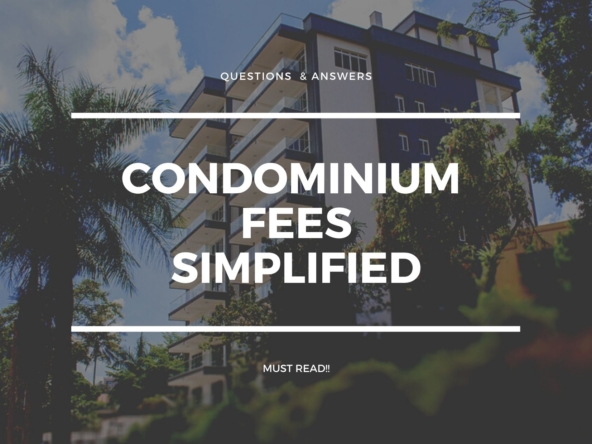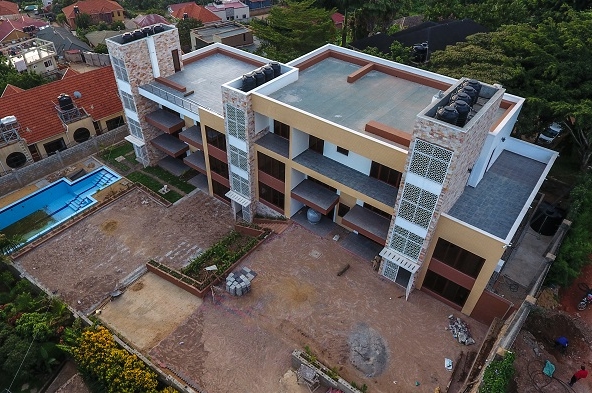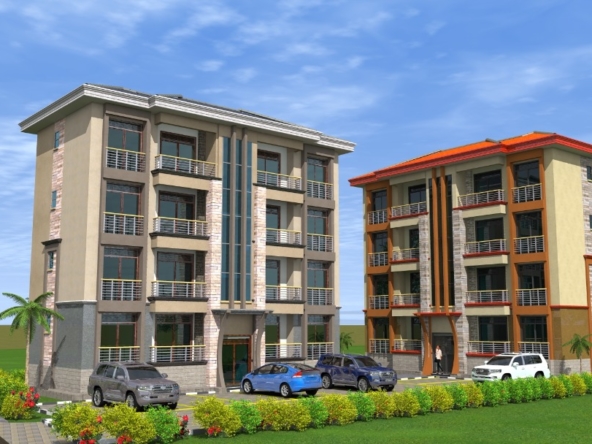Helpful Tips for Buying a New Condominium in Uganda
First, what is a condo?
How does one define a condo? And how is it different than an apartment? A condo is a single residential unit that an individual owns inside a multi-family building. Structurally, an apartment building and a condominium complex are the same in that there are multiple units within one building, but the key difference is that apartments are generally for rent and condo units are individually owned.
In addition to a mortgage, condo owners pay monthly or quarterly fees to a homeowner’s association, which keeps money in reserve for the upkeep of any shared spaces like the yard, common areas (a gym, pool, etc.) and shared structures, such as the roof.
If you’re thinking of buying a new condominium, there are many things to consider before you sign on the dotted line. The first thing you should ask the builder about is the status of the project’s development. You’ll want to know which conditions have been approved such as if the project has been financially secured or if the required building plans have been approved. You’ll also want to know the steps for approval of the development.
Here are some tips to help you make an informed decision:
Make sure you understand exactly what is and isn’t included in the purchase price. Carefully review the unit’s layout, boundaries and unit factor. Review the planned amenities and decide if they meet your needs.
Prepare for politics
When any group of people live together under one roof, there’s potential for trouble. Combine that with making group financial decisions and you have a recipe for a highly charged living situation. Depending on how your association works, there could be enough in reserves to take care of big maintenance projects like replacing the roof, or it could be a situation where everyone has to agree to contribute when the need pops up. Everybody has to agree on chipping in [for projects]. But if there’s a guy in one unit that doesn’t want to, it can get kind of sticky, In other words, everybody has to be on the same page.
Before you buy a condo, go in with the understanding that you may have to negotiate or work things out in a HOA meeting with other residents to get tasks accomplished.
Understand the realities of buying a condo vs. buying a house
When you buy a condo, you own the interior of your space, but not the exterior, whereas when you buy a house, you get the whole ownership of the property. So there’s that, and the fact that you’re in close proximity to all of your neighbours.
Sharing walls and common areas is not for everyone. This close community living can be a sense of aggravation or frustration Shared parking, pools, elevators, stairways, and exercise facilities are subject to everyone’s usage.
Review Association Rules
Seeing as most condos are in close proximity to one another, the communities association will have rules and regulations. Due to this, many associations will have lots of different rules and regulations, in order to “keep the peace” in the community! It’s important to understand that unlike a single family home, you cannot make your own rules and do whatever you want. In many cases, buyers don’t care to review the association rules and have their attorney review on their behalf instead.
Many communities will restrict the type of pets or if any pets are allowed period. The last thing you want to find out is your animal is not allowed in the community! Other common rules in many condo communities relate to whether a unit can be rented or not or whether there are quiet hours. If you have ever had to deal with a bad neighbor in the past, you can understand why these rules are such an important part of a condo community!
Factor in Home Owners Association fees
When calculating what your monthly housing costs will be, don’t forget to factor in the Home Owners Association fees if you’re buying a condo. Although it’s an added cost, sometimes they can save you money.
Not all condos will work with Bank lending
Financing of a condo is not the same as a single family residence. Just like purchasing a single family home it’s critical to get pre-approved prior to looking at condos as well as determining whether it is the “right fit.” Obtaining financing can be tricky when it comes to purchasing a condo, as many lenders and loan products do not allow condo purchases.
Condos are very often purchased with cash due to the regulations of lenders and programs.
If you’re planning on purchasing your condo with a bank mortgage, you should be aware that not every single condo is eligible for financing.
Find out if the condo you’re looking at is mortgage approved by your bank.
Look over the condo association’ s documents for upcoming projects
Owning a single-family home means you have the freedom to do home improvement projects and update your space as you wish. Condo dwellers, on the other hand, are at the mercy of the condo association when it comes to upgrades on the exterior or in shared spaces. Luckily, there’s a way to see if any planned projects are coming up before you buy.
Make sure to review the condo documents for any special assessments or projects in the near future. These assessments can cover things like roof replacements, shared space upgrades, or driving/parking area paving.
Talk with the neighbours
It’s nearly impossible to know what life is really like in a particular condo complex—unless you can score some insider info.
Strike up a conversation with the neighbours or with the condo association president to see what other people think.
No two condo associations are alike
Condo associations are all the same in that they’re a group of people living under the same roof. But the similarities end there. Condo associations are all run differently—and how they operate can have a big effect on your experience in the building.
Some organizations are going to be well funded while other associations will say, we’re just going to not charge a monthly fee.’ But when it comes time to replace a roof or exterior things, it’s got to come out of someone’s pocket. To get a feel for what you’re stepping into, talk to the president of the association.
Look at the condition of the common areas
When evaluating a condo, it’s crucial to not only look at the interior of an individual unit but also to look at the state of things in common areas, Often if the common areas are not kept well, it is a sign of a poorly run association.
While on a tour, do a quick visual inspection of the walls and floors, and check to see if the equipment is working in a gym.
Be your own inspector.
If you get to the inspection stage of a real estate transaction, the inspector will inform you of any major problems within the unit. But before that happens, know that the first line of defense against buying a problematic (and expensive-to-fix) property are your own two eyes.
Look for cracks in the tile and walls. Poorly constructed buildings could mean there are high-cost repairs in the future.
Understand the parking rules
Some condominium complexes include garages or covered parking spaces, but it’s not always clear how many spaces are allotted to each resident. Check to see if there are visitor spaces, and to see whether there are designated spaces for owners, or if it’s a free for all.
Looking to Buying A condominium property? Here’s a handy buying a condo checklist:
Ready to start looking at properties? Here’s a quick checklist of things you should make sure you do before buying a condo:
- Get pre-approved for financing from a lender.
- Find a real estate agent who specializes in condominiums.
- Understand the rules on renting and pets, which can be found in the condo’s CCRs.
- Check for special assessments/upcoming projects in the condo documents.
- Do a visual inspection of common areas.
- Find out how much money the association has in reserves for maintenance and upgrades.
- Check if the condo is approved for bank financing.
- Understand how parking works in the complex.





